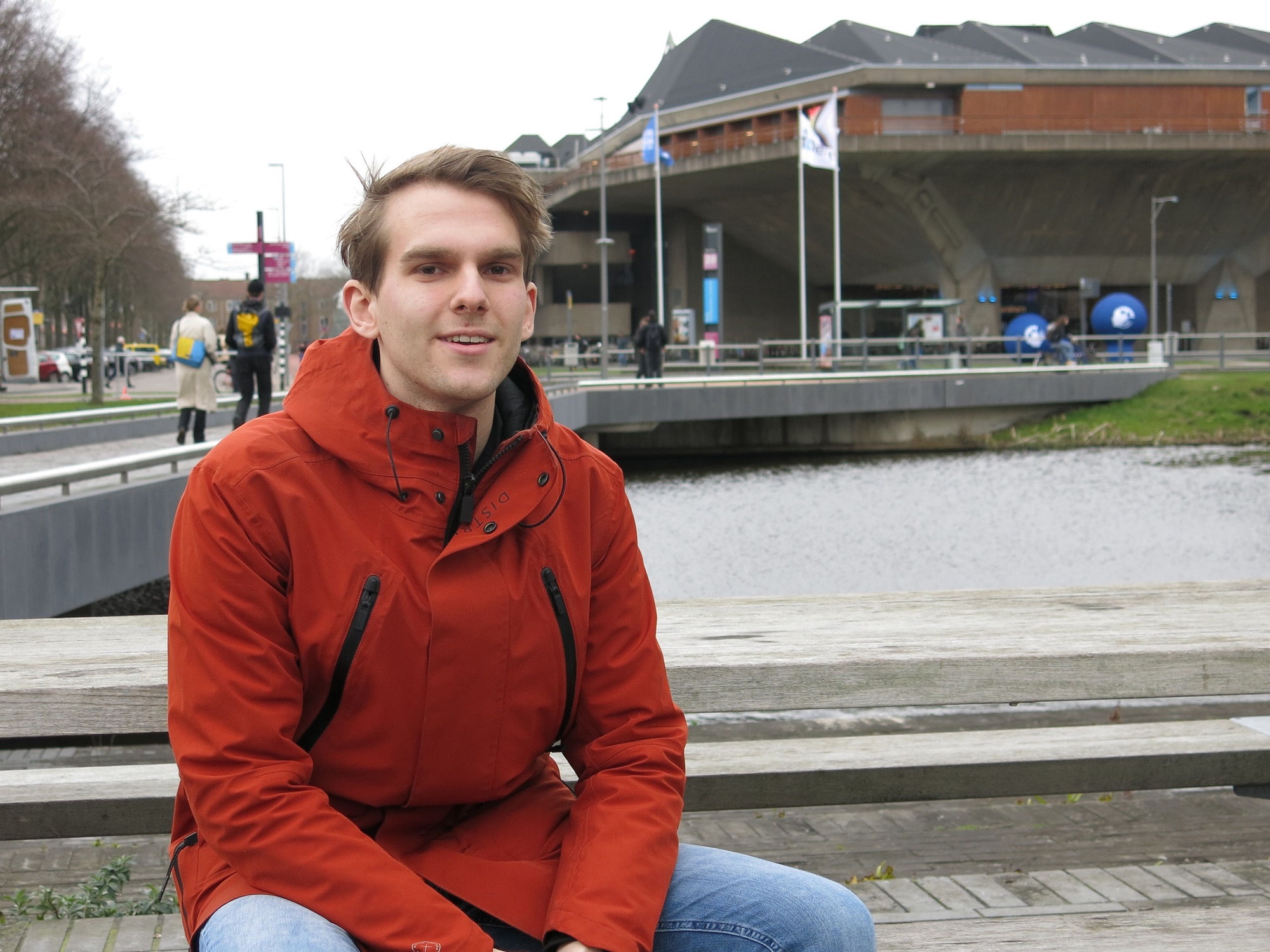Who are the people who study or work at TU Delft? We meet them in Humans of TU Delft. This time: Master’s student Koen van Pelt.
Master’s student Koen van Pelt: “Some charities are over 100 times more effective than other charities, which I found quite shocking.” (Photo: Heather Montague)
English only
“I’m a second-year master’s student in Offshore and Dredging Engineering (3mE) and I am currently working on my thesis. Since January I have been on the board of Effective Altruism Delft (EA Delft), which is a student association that was founded just over a year ago. It’s part of a bigger global network with people around the entire world and we joined the community. Recently most of the universities in the Netherlands joined this global community by starting their own EA organisations.
EA itself is about asking this question: how can we help the world in the most efficient and effective way? And when we find effective ways to help, we actually try to do it. There are a lot of people trying to do good stuff, but it can be really difficult to find out what the best options are and decide what problems you should work on. EA mainly provides a framework and a community to help people who are trying to find opportunities to do good. It’s a way to think about the best ways to help with tackling the world’s biggest problems.
EA Delft is mainly focussed on career advice for students and getting more people engaged with the core ideas of effective altruism. One of the ways to help is by choosing a career that can have a positive impact. There’s an organisation called 80,000 Hours and the main idea is that during your work-life you have roughly 80,000 hours to spend before you retire. If you spend some time trying to plan how to best use those 80,000 hours you could do a tremendous amount of good. And most people who study at a university in a rich country like we do, are pretty privileged. If we try to do something good, we can really have an impact. As students, we might not have money now, but everyone who graduates from TU Delft will probably find a good job. That means we can help a lot and in different ways. It’s really easy to take for granted how good it is here.
‘It’s really easy to take for granted how good it is here’
Effective altruism also provides a lot of resources on how to effectively donate money. An example of this is the organisation GiveWell, which conducts research into what charities have the best cost-effectiveness. Their results show that some charities are over 100 times more effective than other charities, which I found quite shocking.
Within EA Delft, we try to talk about the biggest challenges in the world and then provide a framework. For example, there are three factors to think about when identifying a problem. There’s the scale of the problem, then there’s how easy something is to fix and then it’s about how many people are already working on it. Based on those things you can try to identify which career opportunities might be good. There are already some predefined careers that we can work on, like global poverty or animal welfare, which is the one I’m personally most interested in. But there are also things like engineered pandemics and AI, which could be big things in the future but not a lot of people are working on them. One option is to work directly on these issues, but there’s also the option of earning to give. That could mean that you get a well-paying job and support things by donating money because that’s also a really effective way to help others.
We do an intro-fellowship and we currently have around 40 members who have completed this. It’s a five-week programme, with one meeting each week. There’s a list of articles and research to read through on a specific topic each week. Then you come together to discuss the topic and it’s an opportunity to go into in-depth discussions. These topics can include things like global poverty, existential risks, animal welfare, and rationality. When you finish the fellowship, you should have a really good understanding of the core principles of EA.
The intro-fellowships start every quarter. We also have a career fellowship where you have group discussions on how to find a career and get input from other members. We have discussion evenings where we dive into random topics, we have social evenings and we have Wednesday lunches. We also attend external events and we have social events with the EA groups in Leiden, Rotterdam and The Hague. If people are interested in more information, we have a website, an Instagram page and we also have a WhatsApp group where we post information about all of our events.
One of the best parts of EA is that the community itself is really nice. I wanted to do something like this for quite a while but figuring it out on your own can be quite difficult. When I found EA Delft it was amazing because it’s just a big group of people who are morally ambitious about helping the world. And being surrounded by such motivated people is really nice.”
Want to be featured in Humans of TU Delft? Or do you know someone with a good story to tell? Send us an e-mail at humansoftudelft@gmail.com
Heather Montague / Freelance writer



Comments are closed.